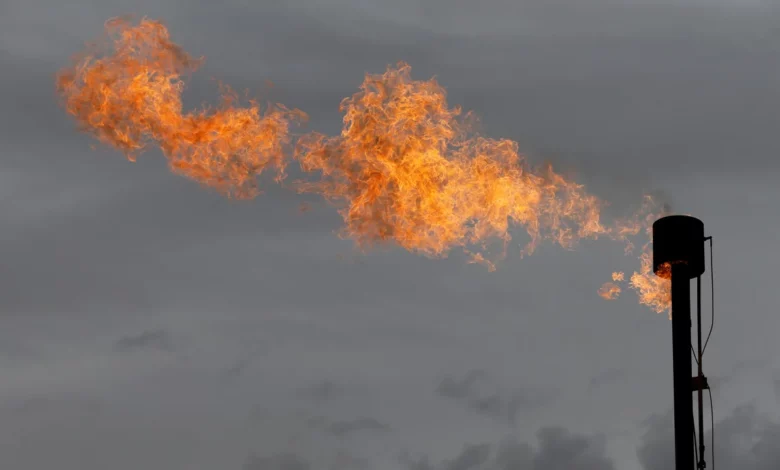
The Biden administration has finalized a rule to significantly cut the US fossil fuel industry’s emissions of methane, a powerful planet-warming gas that scientists and climate advocacy groups have pressed nations to rapidly reduce as global temperature soars.
Environmental Protection Agency Administrator Michael Regan and White House National Climate Adviser Ali Zaidi will unveil the rule at the COP28 climate summit in Dubai on Saturday – a day where cutting methane emissions will be a major theme and several multi-lateral announcements are expected to be made.
Methane, the main component of natural gas and a byproduct of fossil fuel drilling, is a potent source of climate pollution with more than 80 times the warming power of carbon dioxide during its first two decades in the atmosphere. The oil and gas industry is the main source of global methane emissions, according to the International Energy Agency.
The new US rule, which will be implemented by the EPA, is expected to slash methane emissions by nearly 80% through 2038, compared to what they would have been without the rule. The EPA estimates it will stop about 58 million tons of methane from escaping into the atmosphere during that period – the equivalent of taking more than 300 million gas-powered cars off the road for a year.
The rule will crack down on methane leaks from industry in several ways. In a major new development, it will end routine flaring of the natural gas that is a byproduct of drilling oil wells and will phase in a requirement for that gas to be captured instead of burned. The rule will also require stringent leak monitoring of oil and gas wells and compressors, and cut down on leaks from equipment like pumps, storage tanks and controllers.
It will also rely on independent, third-party monitoring – using satellites and other remote-sensing technology – to find very large methane leaks.
Regan said the US rule signified “strong action” from the Biden administration by “significantly slashing methane emissions.” The US is the world’s largest oil producer, drilling and selling 21% of the world’s oil last year.
“From mobilizing billions in investment to plug orphaned wells, patch leaky pipes, and reclaim abandoned mines to setting strong standards that will cut pollution from the oil and gas sector, the Biden-Harris Administration is putting the full weight of the federal government into slashing harmful methane pollution,” Zaidi added in a statement.
Methane emissions surged in recent years, to the surprise of scientists and energy experts, who are now advocating for capping leaks and ending flaring and venting as easy ways to pump the brakes on the pace of global warming.
Pollution experts and climate advocates told CNN there is plenty of incentive for oil and gas companies to fix the leaks and stop most flaring, since it ultimately means they can pollute less while selling more oil and gas.
“There’s a lot of opportunity,” Carrie Jenks, the executive director of Harvard Law School’s Environmental & Energy Law Program, told CNN. “Companies should want to reduce their leaks because that’s more product. All the incentives should align here.”
The EPA’s plan to end routine flaring is a major step forward, said Jon Goldstein, senior director for regulatory and legislative affairs at the Environmental Defense Fund, who focuses on methane pollution.
“The latest science is showing that flares are not just sources of waste, they’re also large sources of pollution because they’re just not working right,” Goldstein said. “The easiest way to stop that pollution is to stop sending it to flares in the first place. It doesn’t seem logical, why are you burning off this product you can sell?”




